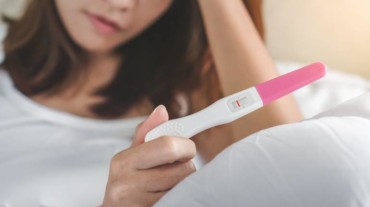
Ankita Singh, 33, ended up with an accidental pregnancy. Just when she embraced the idea of stepping into this new phase with mixed emotions, her world turned upside down with a natural miscarriage. It was an early miscarriage, just within 5-6 weeks after the embryo and sperm met. Ankita was heartbroken. But more than that, she developed a fear about trying to get pregnant again.
She’s not alone. A lot of women who go through pregnancy loss at any stage of their journey, end up with fears and doubts galore. Will I be able to get pregnant again? Will I have a healthy baby? Is there a problem with me? Why did I have a miscarriage? These questions and more tend to cloud the mind. The couple may end up deliberating more than usual about when to try again, whether to try again, and whether to take any precautions before trying once more.
Before we try to understand why concerns about pregnancy after a miscarriage need to be put to rest, let us first understand what is a miscarriage after all.
Miscarriage is a terminology given to a pregnancy loss. Usually it happens in the first half of pregnancy, that is before 5 months or 20 weeks.
Unfortunately, miscarriage is very common. Every one in four pregnancies can result into miscarriage,” Dr Vaishali Joshi, senior Obstetrician and Gynaecologist at Kokilaben Ambani Hospital, Mumbai, tells HealthShots.
“The most common reason for early pregnancy miscarriage is a defective genetic material in the embryo or pregnancy. This happens during the mixing of genetic materials from both parents to create a new unique chromosomal assembly of the fetus. When nature realizes its mistake, the growth of the pregnancy stops and miscarriage happens,” explains the expert.

Another reason of a miscarriage can be an infection. These causes can give rise to single or non-recurring miscarriages
The uncommon causes are immunological issues in the mother, or the defective or abnormal development of the uterus or genital organs from birth in the woman. Usually in these circumstances, the miscarriages are recurrent and preventable by correct medical and surgical treatments, shares Dr Joshi.
Just like pregnancy is a life-changing experience for a woman, a miscarriage can also leave a lasting impact on her physical, mental and emotional life.
While the physical changes revert in 4-6 weeks after the onset of periods, the process of bereavement can take longer.
Select Topics of your interest and let us customize your feed.
PERSONALISE NOWThat is why Dr Joshi recommends that when the woman recovers mentally and emotionally, she should start trying to conceive again.
However, there’s a word of caution and exception.
“If previous pregnancy losses are due to ectopic pregnancy or molar pregnancy, in such cases future pregnancies should be tried after checking with your gynaecologist,” she adds.
Every pregnancy is different
Yes, that’s right. Just because one pregnancy has gone wrong, it doesn’t mean your approach turns negative.
“It is important to remember that every pregnancy is different and having a positive and cautious approach helps women to tide over the anxious time in future pregnancy,” suggests Dr Joshi.
She says that medical evidence has shown that the chance of having a successful pregnancy is similar to anybody else’s, even after first miscarriage. And she supports her statement by citing facts from the American Pregnancy Association (APA): “At least 85 percent of women who have suffered a miscarriage will have a full term healthy pregnancy later.”
The process of ovulation commences with onset of periods post-miscarriage. It may lead to a rebound phenomenon, increasing the chances of spontaneous conceptions within first six months of miscarriage.

According to a study from the National Institutes of Health, women who got pregnant right after a miscarriage had a higher live birth rate than those who waited longer — 53 percent compared to 36 percent. Additional research found that people who got pregnant again within three months of a miscarriage reduced their risk of another pregnancy loss compared to those who conceived after three months, says Dr Joshi.
“Plan future pregnancy with confidence and scientific knowledge. The anxiety, hope and nervousness during subsequent pregnancy can be managed efficiently by supportive life partners, empathetic gynecologists and a positive attitude,” adds the expert.
So, stay hopeful, and stay strong.